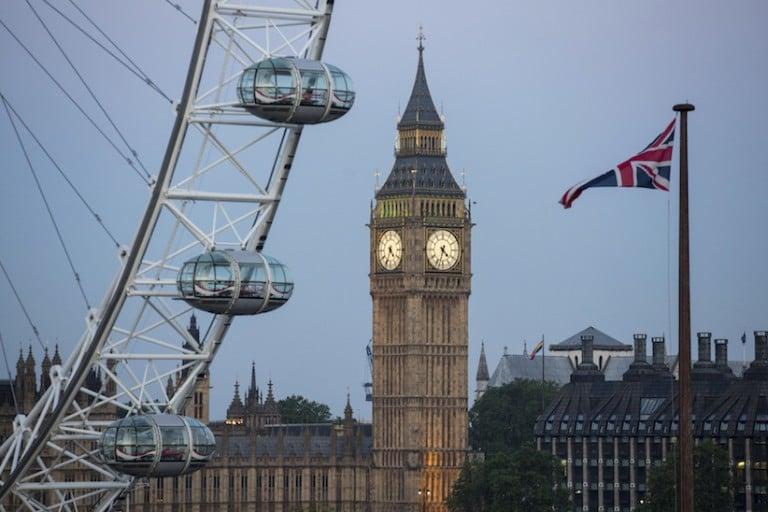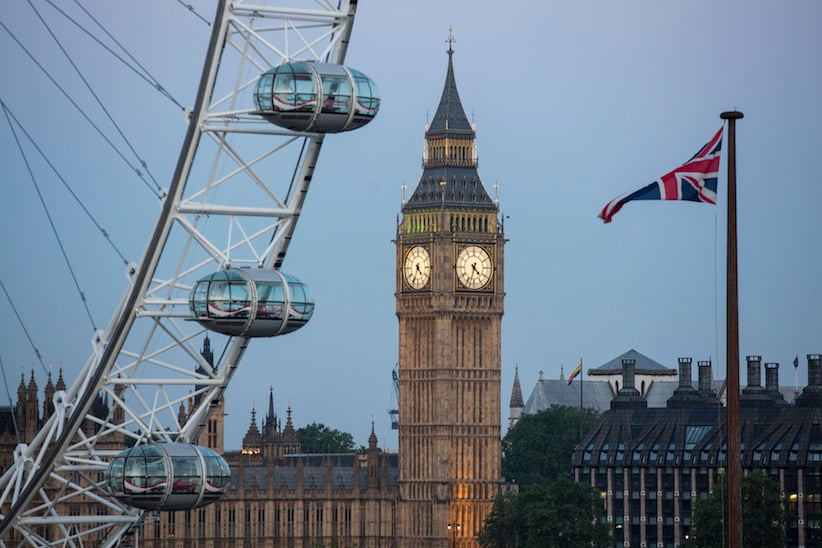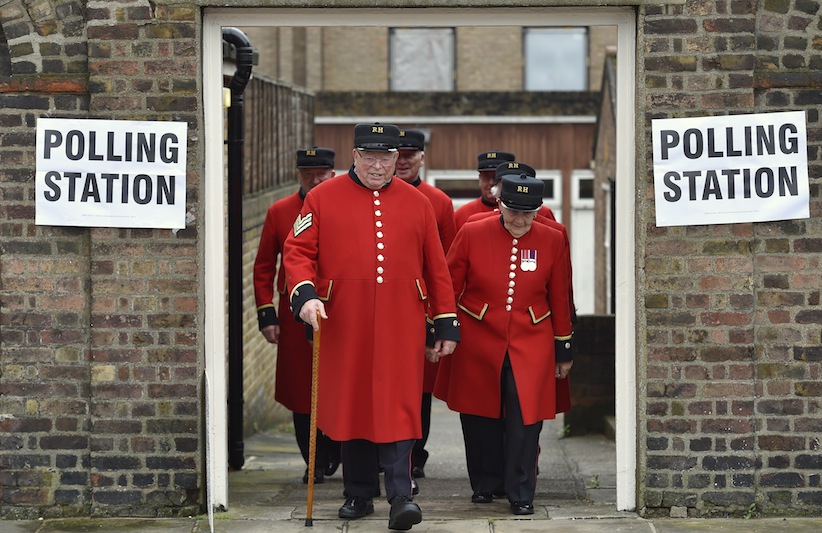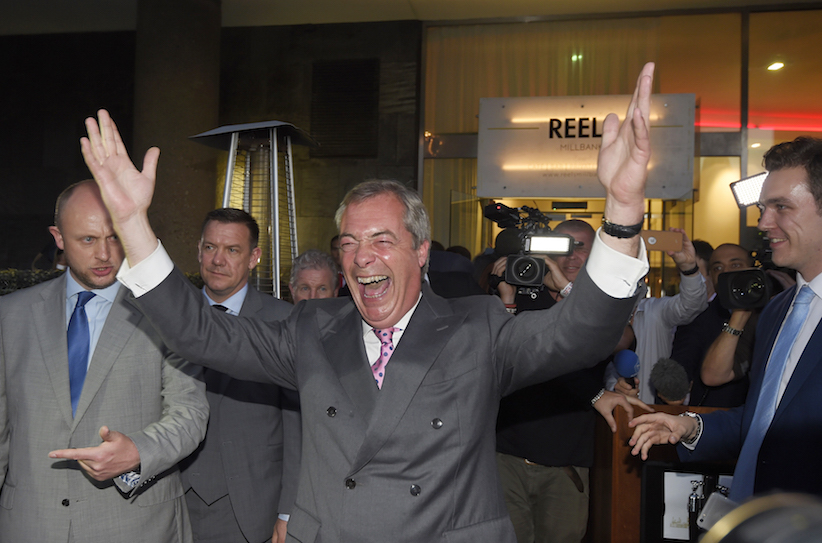Brexit night: What happened?
Colin Horgan on a less than united kingdom, and how Britain’s big decision unfolded

The Houses of Parliament seen from the Royal Festival Hall, in London, Britain June 24, 2016. REUTERS/Rob Stothard/Pool – RTX2HWGB
Share

It had all started so well for Remain. Unlike a general election, there were no exit polls taken for the referendum on whether or not Britain would leave the European Union. All anyone had to go on when the polling stations closed at 10 p.m. in the U.K. was a YouGov poll taken earlier that put Remain ahead 52 per cent to 48 per cent. The pound surged. Nigel Farage, head of the United Kingdom Independence Party, all but conceded.
But then the numbers from Newcastle came in. Newcastle, a working-class city in England’s northeast corner, was expected to go for Remain, but when the count was done, it was much closer than anyone anticipated. The count was just 65,405 to 63,598 in favour of staying in the EU. The talking heads at the BBC agreed: if Remain were going to pull off the victory, it would have to come up with better numbers than that in the areas it expected to win. Then, not long afterward, Sunderland, a city just to the south of Newcastle reported its results. It was a landslide for Leave: 61.34 per cent voted for Brexit. The pound took a huge tumble.
As the evening wore on, pundits repeated that though the numbers were looking strong for Leave, London had yet to report. London, with Scotland, was known to be heavily in favour of remaining in the EU. Sure enough, the early results from the capital bore that out. In Lambeth, over 78 per cent of voters opted to stay in the EU. In Hammersmith and Fulham, it was just over 70 per cent in favour of the EU. And yet, the numbers themselves were simply not there for Remain, even in those strongholds. And when the results from Wales started to roll in, virtually all in favour of a Brexit, things began to look very grim for those in the Remain camp, perhaps worst of all for the man who will wear this result more than anyone else: Prime Minister David Cameron.
It was early still when it emerged that over 80 Euroskeptic Conservative MPs signed a letter pledging allegiance to Cameron, encouraging him to stay on in his role no matter what, despite the fact that he led the campaign to keep Britain in Europe. “We believe … you have both a mandate and a duty to continue leading the nation implementing our 2015 manifesto,” his fellow MPs wrote.
Liam Fox, the former defence secretary, repeated that argument on Sky News. “I think he should stay because clearly there is going to be some short-term turbulence … As the prime minister that gave us the referendum he is best placed to see us through,” Fox reportedly said. “It would be quite wrong, and against his character, just to say, ‘I lost the referendum therefore I’m going.’ There’s a duty to take that process through to a logical conclusion. I hope that’s what we do.”

But for some, the idea that Cameron might stay on was difficult to take. As the wee hours ticked over in London, the former secretary of state for business, innovation and skill (as part of the coalition government), said that, no matter the result, Cameron’s “day is now gone.” A little while later, at around 3:50 a.m., Labour MP Hillary Benn, said much the same thing. “I think it’s very hard for him in those circumstances to remain. If you are the prime minister, you’ve called this referendum, you’ve laid your reputation on the line and your arguments. I think it’s going to be very hard,” Benn said.
From some inside the Conservative Party, like Sir Bill Cash (who had challenged Cameron’s leadership), there was more skepticism still. An exit from the EU would be a very complicated thing, given how much the prime minister’s office would have to work alongside the various departments in rolling back whatever EU laws would be deemed unnecessary, Cash said. To do that, the person in the prime minister’s chair would have to be “completely committed to Brexit.” In other words: not David Cameron.
Who then? Just after 4 a.m., Nigel Farage—the man who had only hours earlier practically given up his cause entirely—stood before his supporters once again in a packed room to deliver a completely different kind of speech. Moments earlier, ITV announced that the probability of a Leave victory was 80 per cent. Farage was exuberant.
[widgets_on_pages id=”BREXIT”]
“If the predictions now are right, this will be a victory for real people, for ordinary people, a victory for decent people,” he declared to great applause. “We have fought against the multinationals, against the big merchant banks, against big politics, against lies, corruption and deceit. And today, honesty and decency and belief in nation I think now is going to win.”

Farage continued, telling his supporters that, should Leave win, they will have done it without “a fight,” and without “a single bullet having been fired.” Then, after hoping that this result starts the downfall of the EU entirely, Farage declared: “Let June the 23rd go down in our history as our independence day.”
A few minutes later, at around 4:10 a.m., the pound sterling fell again, to a 31-year low. Roughly eight minutes later, ITV upped the chances of a Leave win to 85 per cent. Fifteen minutes later, that changed: ITV called the whole thing for Leave.
What now?
As the morning broke over the White Cliffs of Dover—as ITV showed a few times—European correspondents checked in from Berlin and Paris and Brussels. There seemed to be no concrete answers. Will Article 50 of the Lisbon Treaty, the mechanism by which an EU country begins exit proceedings, be implemented immediately? What will the Germans say? And what will become of the EU itself? Could a British exit start a domino effect, particularly among European voters who, like many of those who supported Leave, want more say over domestic policy like border controls?
At 5 a.m., it was still difficult to say what Europe might do, faced with this news. Closer to the action, however, there was a much more definitive statement. “Scotland has delivered a strong, unequivocal vote to remain in the EU, and I welcome that endorsement of our European status,” Nicola Sturgeon, the current first minister of Scotland, said in a statement. “The vote here makes clear that the people of Scotland see their future as part of the European Union.”
A few minutes later on ITV, presenter Tom Bradby stated flatly: “There is uncertainty everywhere.”
Thus began Friday morning in, what is for now, still the United Kingdom.